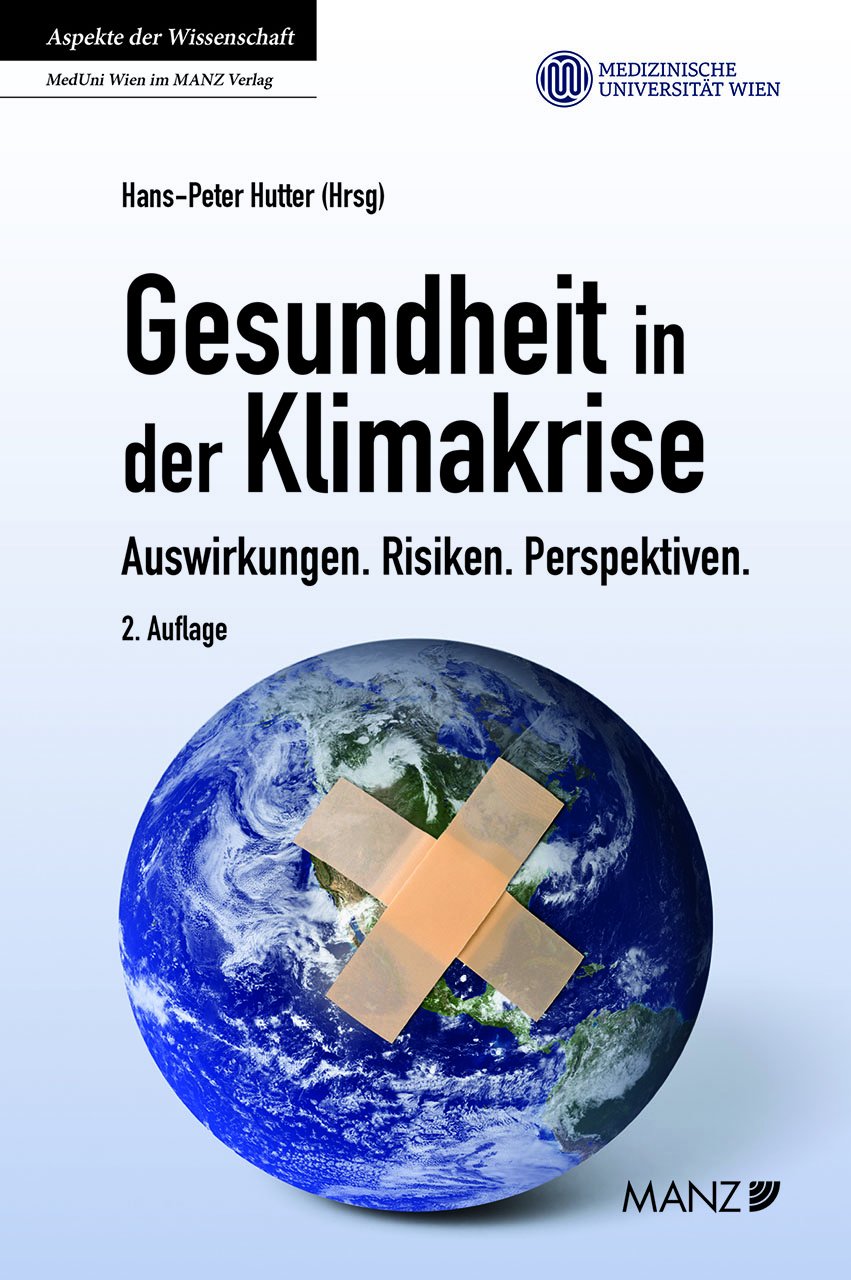
(Vienna, 14-03-2023) Increasing drought and lack of snow in winter, aridity and floods in summer: the climate crisis has taken on clear manifestations - also in terms of health. The urgency of the issue prompted MedUni Vienna to update the book "Climate Change and Health". The new edition was recently published under the title "Health in the Climate Crisis" and was presented yesterday as part of the "Medical University of Vienna Day". In their guidebook, Hans-Peter Hutter and a team of authors from MedUni Vienna's Centre for Public Health cover a range of topics from the consequences of extreme weather events and the effects of climate change on mental health to connections with the biodiversity crisis and other less obvious aspects: According to new scientific findings, prolonged exposure to air pollutants not only increases the risk of contracting SARS-CoV-2, but also the risk of contracting COVID-19 and dying.
The close affiliation between climate change and air pollutants has already been demonstrated by science in numerous studies. The intensive research on SARS-CoV-2 throughout the past three years has not only produced findings on the virus itself, but also on the measurable impact of air pollution on infectious diseases, which is little known to the public: Nitrogen oxides and particulate matter produced by the combustion of fossil fuels prolong the survivability of viruses in the atmosphere and thus increase the risk of infection. A study from northern Italy in 2020 demonstrated that an increase of just one millionth of a gram of fine dust per cubic metre of air on an annual average can increase infections with SARS-CoV2 by five percent. In relation to 100,000 people, this results in 300 additional COVID 19 cases," reports Hans-Peter Hutter from the Department of Environmental Hygiene and Environmental Medicine at MedUni Vienna's Centre for Public Health on one of the many topical aspects considered in the recently published book Health in the Climate Crisis.
Climate protection is health protection
Other studies have shown that ongoing exposure to pollutants not only increases the risk of infection, but also the risk of disease, severe progression and death. "Our analyses of the situation in Vienna also showed that nitrogen dioxide concentrations in 2019 were associated with a greater risk of dying from COVID-19. The reason for this is an increased vulnerability of people to SARS-CoV-2 in areas with high levels of air pollution due to the resulting pre-damage to the lungs and cardiovascular system," explains Hans-Peter Hutter. These results illustrate that climate protection measures such as the curbing of fossil fuel produces direct health benefits.
Together with a team of authors from the Department of Environmental Hygiene and Environmental Medicine at MedUni Vienna's Centre for Public Health, Hutter summarised some well-known and many lesser-known aspects of "Health in the Climate Crisis" according to the current state of science. The book has been published in MedUni Vienna's "Aspekte der Wissenschaft (Aspects of Science)" series in cooperation with MANZ Verlag. In addition to information on the consequences of climate change for people and the environment, which are as varied as they are current, the book also contains numerous practical tips on climate protection and adaptation to climate change.

Book tip
"Gesundheit in der Klimakrise.Auswirkungen. Risiken. Perspektiven" (Health in the climate crisis. Impacts. Risks. Perspectives),
Hans- Peter Hutter (Publisher),
2. edition,
"Aspekte der Wissenschaft" series, MedUni Wien in the MANZ Verlag,
ISBN 978-3-214-04244-8,
150 pages, 23.90 EUR,
available in the MedUni Shop, book shops and under https://shop.manz.at